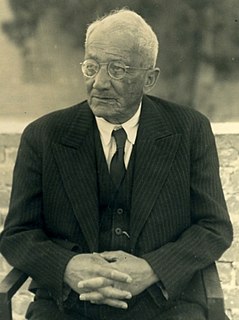A Quote by William Butler Yeats
The labor of the alchemists, who were called artist in their day, is a befitting comparison for a deliberate change of style.
Quote Topics
Related Quotes
The old alchemy, or what was just called alchemy, has a history. Most people, if they've been trained in sciences, think of alchemy as the precursor to chemistry. Back in time, people were called alchemists and they worked for kings and rich people, smelting metal and trying to change base metal into gold, because the king wanted to be richer.
What about precarious labor? It's actually not the most efficient form of labor at all. They were much more efficient when they had loyalty to their workers and people were allowed to be creative and contribute - you know that what precarious labor does is that it's the best weapon ever made to depoliticize labor. They're always putting the political in front of the economic.
Labor has been severely undermined, but that's happened before. In the 1920s, the labor movement was virtually crushed, in large part by Wilson's Red Scare, but it dramatically revived in the 1930s. It spearheaded the social-democratic New-Deal style changes which were beneficial to the country - not sufficient, but beneficial. That could happen again.
I'm definitely a big believer in the notion that a heightened style can get you closer to an authentic human experience than so-called realism on film. There are films I love that have kind of a muted or realistic style, but for me on any given day I have more moments during the course of a day that feel like a Fellini movie than I do a Cassavettes movie.







































